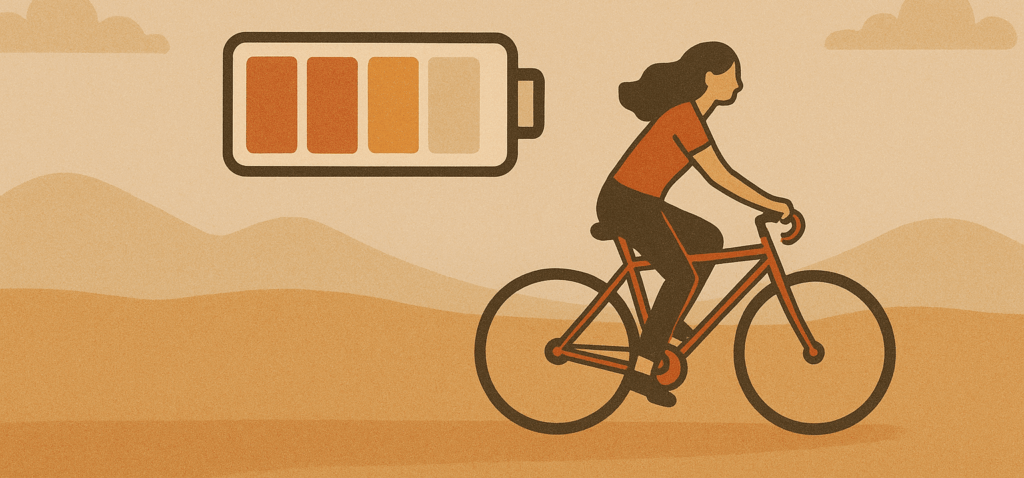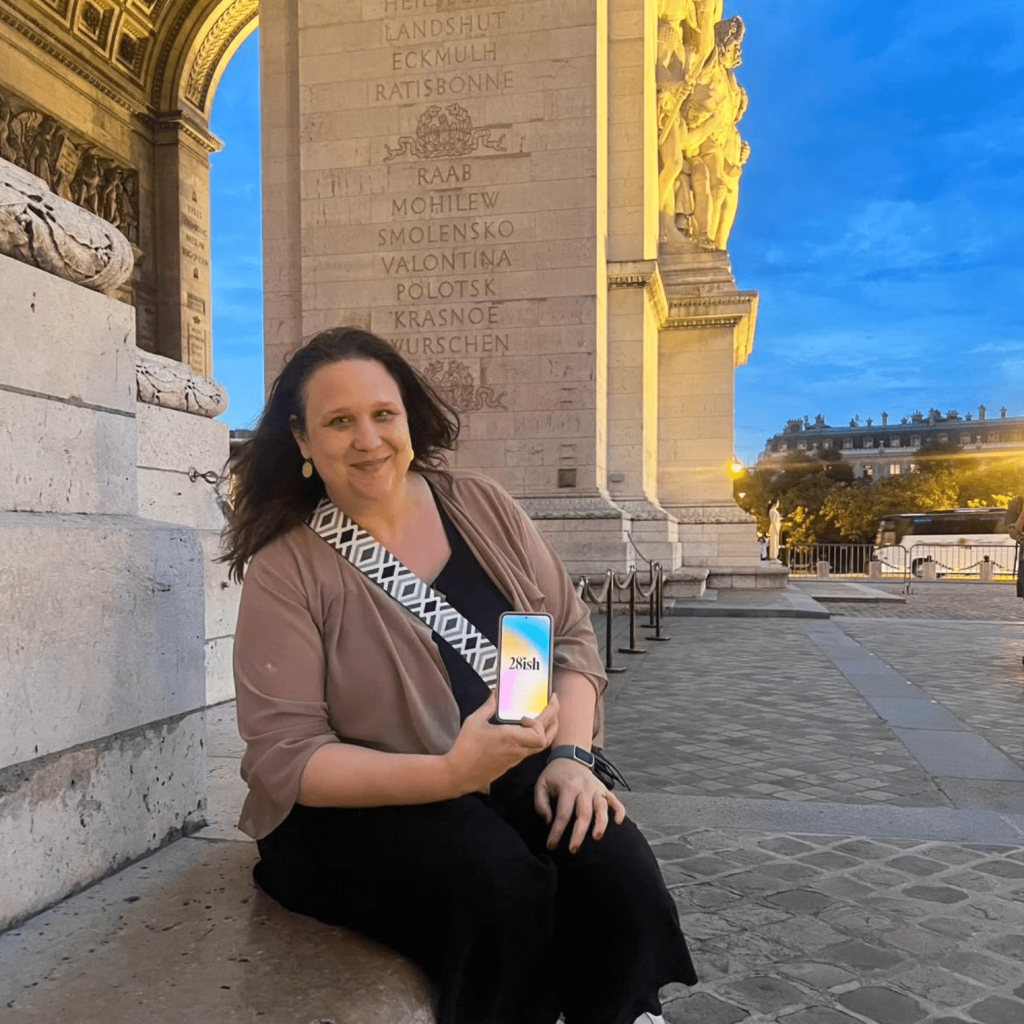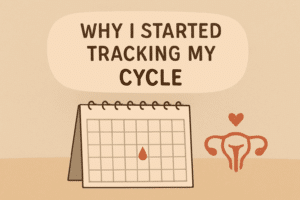Every new semester feels like a reset button. Suddenly, my calendar is packed with classes, group projects and meetings, and catching up with friends. I’ve started noticing that how much I can handle doesn’t just depend on my workload, but also on where I’m at in my cycle.
Some weeks I can bounce from class to study session to weekend plans without a hiccup. Other weeks, I just wanted to curl up with my headphones. Social interaction can power my battery but depending on the phase I’m at in my cycle, I start to crave some me time, too … the quiet. It’s not as clear cut as being an “introvert” or “extrovert.”
The follicular phase starts on the first day of menstruation and ends with ovulation when the hormone, estrogen, peaks. Research has shown that rising estrogen is linked to sharper cognitive function, better mood regulation, and even higher sociability [1,2]. For me, this often shows up as extra motivation and a tendency to pack my schedule too full.
Especially at the start of a semester, this is the time during which I over-exert myself to stay on top of my to-do list while studying with friends, going to events, working out, and making plans every weekend. And as soon as the luteal phase hits, though, I find my social battery depleted. I just want to stay in and work with music.
As progesterone rises in the luteal phase, it can bring lower energy, fatigue, and mood shifts [3]. That helps explain why my social battery feels so depleted then. I’m not just imagining it. My body is literally in a different state.
I realized I needed to find more balance instead of functioning at opposite poles of the spectrum through my cycle. My social battery works like the tide: rising high during the follicular phase and pulling back in the luteal. The trick has been learning how to ride those waves instead of getting swept up by them.
What’s worked for me has been planning with my cycle in mind. Cycle syncing suggests that paying attention to hormonal phases can improve productivity and well-being [4]. During the follicular phase, I still lean into that extra energy, but I make sure not to overload my weekends. I make sure to have space to rest, whether that be going to the gym or having an evening in with a movie and sweet treat. I schedule the big group projects and work meetings earlier in the morning as I’ve noticed having more energy in general at that time through the entirety of my cycle.
I’m mindful of attending social events earlier in the cycle when I know I’ll enjoy them more and be present versus leaving the luteal phase for quieter tasks like reading, note-taking, and solo walks. I’ve also started treating my me time as non-negotiable, not as a reward for when I’ve burned out.
Sometimes, it’s inevitable that I won’t have everything perfectly organized around my cycle. There will be a birthday party I want to attend during my luteal phase. There may be an assignment deadline I need to lock in for independently during my follicular phase. But by still giving myself permission to work with my cycle instead of against it, I’ve found a steadier rhythm.
I can still enjoy the rush of the semester kickoff without crashing so hard when my energy shifts. Balance, for me, has meant recognizing that both phases bring strengths. The trick is knowing when to harness each.
References
- Pletzer, B., & Noachtar, I. (2023). Emotion recognition and mood along the menstrual cycle. Hormones and Behavior, 154, 105406. https://doi.org/10.1016/j.yhbeh.2023.105406.
- Hromatko, I., & Mikac, U. (2023). A Mid-Cycle Rise in Positive and Drop in Negative Moods among Healthy Young Women: A Pilot Study. Brain Sciences, 13(1), 105. https://doi.org/10.3390/brainsci13010105.
- Wang, J.-X., Zhuang, J.-Y., Fu, L., & Lei, Q. (2021). Social Orientation in the Luteal Phase: Increased Social Feedback Sensitivity, Inhibitory Response, Interpersonal Anxiety and Cooperation Preference. Evolutionary Psychology, 19(1), 1474704920986866. https://doi.org/10.1177/1474704920986866.
- Ziomkiewicz, A., Wichary, S., Bochenek, D., Pawlowski, B., & Jasienska, G. (2012). Temperament and ovarian reproductive hormones in women: Evidence from a study during the entire menstrual cycle. Hormones and Behavior, 61(4), 535–540. https://doi.org/10.1016/j.yhbeh.2012.01.017.





